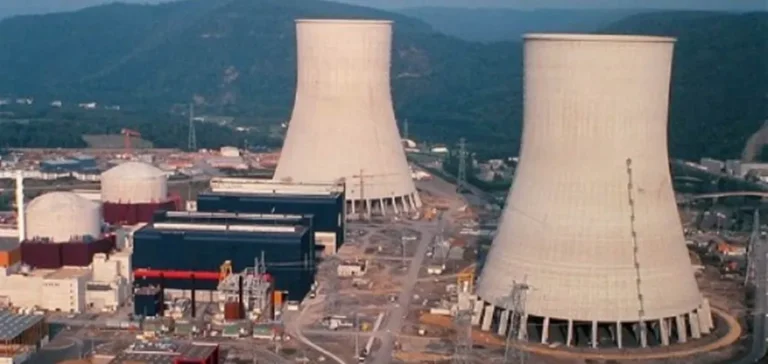The Egyptian Ministry of Electricity and Renewable Energy is intensifying the grid-connection phase at the El-Dabaa nuclear site, while the first generator is still scheduled to enter service by the end of 2025. Minister Mahmoud Esmat inspected the Alamein substations on July 2 alongside teams from Russian company Rosatom, the project’s main contractor. Agence Ecofin reported on July 4 that the visit formed part of a revised timetable intended to keep contractual deadlines on track. Located on the Mediterranean coast, the plant is expected to supply nearly seven % of the country’s electricity from 2026.
A four-reactor nuclear project
The plant will total 4,800 MW through four Russian VVER-1200 reactors, a third-generation technology first commissioned in 2016 in Russia. Civil works began in 2022 after all safety licences were issued by the Egyptian Nuclear and Radiological Regulatory Authority. Rosatom is responsible for design, construction and supply of major equipment, while the Egyptian state funds the off-site infrastructure. The initial grid connection is due to coincide with energisation of the 500 kV transformers built at Alamein.
The authorities have confirmed that the second unit, scheduled for 2027, will follow a similar rhythm, shortening grid-coupling time compared with the first reactor. Ministry engineers are overseeing installation of the extra-high-voltage lines linking El-Dabaa to the national dispatch centre. Under the contract, all four units must reach full commercial operation by 2030, with no budget overrun reported so far.
Transmission infrastructure expansion
Between 2014 and 2023 Egypt’s grid capacity rose from 29,000 MW to 61,000 MW, according to ministry data. Over the same period the number of 500 kV substations essential for power transit increased from five to 23. The country also built 27,000 km of high-voltage lines, ReGlobal data show, to secure delivery of new generation to demand centres. Works linked to El-Dabaa represent the final stage of a decade-long transmission-network expansion plan.
The new lines incorporate high-capacity low-loss conductors to limit reactive-power demand and stabilise frequency. State-owned Egyptian Electricity Transmission Company is overseeing installation of synchronous compensators to manage load variability. Supply contracts for electrical equipment signed with European and Asian manufacturers include progressive local-content clauses. These provisions aim to build domestic expertise in civilian nuclear management.
Expected impact on the power mix
LowCarbonPower data show that fossil sources still accounted for 80 % of Egypt’s electricity generation in 2024, compared with 12 % for hydropower, solar and wind combined. El-Dabaa will add firm output expected to cut liquefied natural gas imports during summer peaks. The ministry anticipates annual foreign-currency savings on fuel purchases but has not released a figure. Talks continue with multilateral lenders to tie future grid finance to this substitution goal.
State development bank VEB.RF is funding the nuclear island through an intergovernmental loan of about 25 bn $, denominated in roubles and dollars and repayable over twenty-two years. The Egyptian treasury is covering the remainder, notably off-site infrastructure such as roads and training for more than three thousand local technicians. The staggered commissioning of the four units is also intended to support the country’s strategy to become an electricity exchange hub for the eastern Mediterranean. Negotiations on future interconnections with Greece and Saudi Arabia were described as priority projects by the prime minister’s office during a press briefing on June 18.






















